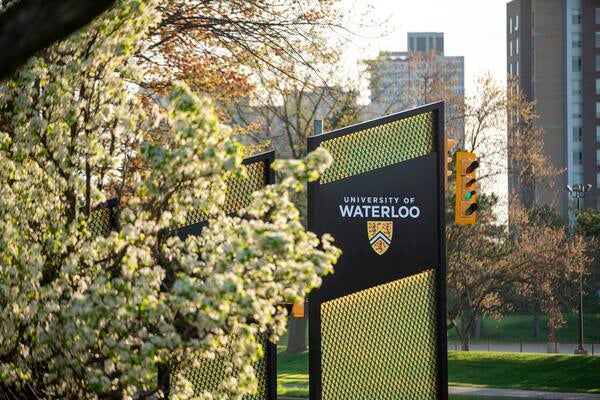
Michael Litt named to Canada’s Top 40 Under 40
Waterloo alumnus recognized for entrepreneurship, innovation and commitment to the greater good.

Waterloo alumnus recognized for entrepreneurship, innovation and commitment to the greater good.
By Claire Mastrangelo Office of AdvancementWaterloo alumnus Michael Litt (BASc ’11) has been named to Canada’s Top 40 Under 40. Created by Caldwell executive search firm, the annual awards recognize business leaders who transform their industries while giving back to their communities and the country.
Meet the alumnus who’s changing the landscape of business in Canada.
Michael Litt (BASc ’11)
Age: 32
Education: Faculty of Engineering — Systems Design Engineering
Company: Co-founder & CEO, Vidyard
Vidyard is a video analytics platform that helps businesses develop effective video strategies. With more than 200 employees working in Vidyard’s office in Kitchener, Ontario, the company gives back to its community through employee giving and volunteerism activities, corporate philanthropy and community engagement initiatives.
Beyond leading the team at Vidyard, Michael serves as the co-founder of Garage Capital, a venture capital firm for emerging tech startups in the Waterloo region.

Michael Litt (BASc '11), co-founder and CEO of Vidyard.
Canada’s Top 40 Under 40 is the latest of many accolades for you. What’s the secret to your success?
I’ve always focused on solving a real problem. At Vidyard, we know that companies find it challenging to use video effectively, so we’ve built solutions to help them do that. With Garage Capital, there was a lack of early-stage financing for technology-oriented startups. We started investing in them, found some success and grew the fund. Philanthropically, there was a gap in the understanding of how the tech ecosystem could support local communities, so we filled that gap with our time, energy and resources.
So, I don’t know if there’s any secret. We’ve just focused on providing value wherever possible. Sometimes the accolades follow, but in my perspective there’s still a long way to go.
Your first start-up failed, and when that happened, you also failed your year at Waterloo. What did you tell yourself in order to keep going?
It was a very difficult time. Certainly I felt sorry for myself and it wasn’t an immediate bounce-back, but I think I was determined to finish what I’d started. It was also clear that the best way to get a good job and learn about my field was to finish my academic career. Because I did that, I got the opportunity to start my company. Waterloo gave me the ability to move on and become the entrepreneur I hoped I could be.
What’s one piece of advice you wish people would stop giving young entrepreneurs?
I think there’s a tendency to push young entrepreneurs to incorporate and create employment agreements. All of that stuff is important, but in the end the most important thing is to solve a problem that exists in the world. I wish more entrepreneurs were advised to spend all their time with their customers and really understand their needs.
What else do you hope to accomplish before you turn 40?
I intend to continue to grow Vidyard and create global impact. We serve 50 million videos a day — can we hit a billion? Can we be a dominant provider to the most successful businesses in the world? In parallel, can we turn Canada into the tech capital that it needs to be for the next wave of the economy?
These are the areas where my focus lies. I’m sure there will be lots of twists and turns over the next eight years, but lots of learning as well. That’s what I’m most excited about.

Read more
Here are the people and events behind some of this year’s most compelling Waterloo stories

Read more
The 2025 cohort represents some of the brightest new entrepreneurial minds in STEM

Read more
Jocelyne Murphy, recipient of the 2025 Pearl Sullivan Emerging Global Leaders Award, is helping students around the world connect, create and lead with purpose
The University of Waterloo acknowledges that much of our work takes place on the traditional territory of the Neutral, Anishinaabeg, and Haudenosaunee peoples. Our main campus is situated on the Haldimand Tract, the land granted to the Six Nations that includes six miles on each side of the Grand River. Our active work toward reconciliation takes place across our campuses through research, learning, teaching, and community building, and is co-ordinated within the Office of Indigenous Relations.